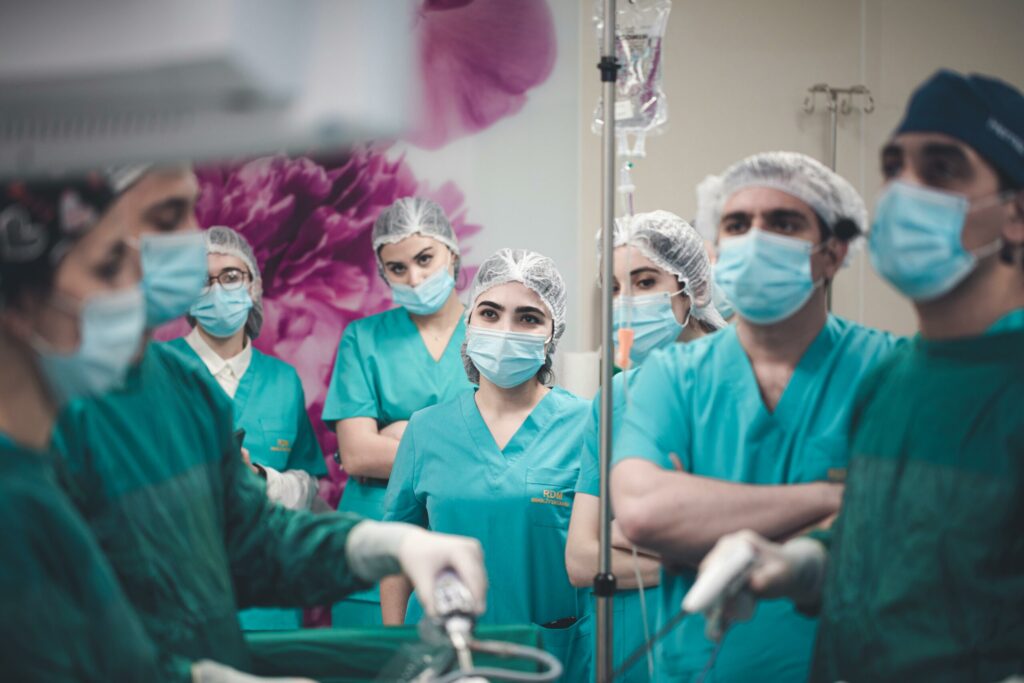
For medical professionals, maintaining high-quality care in a field that is developing quickly is a constant struggle. To keep ahead of the ever-evolving landscape, they must constantly hone their talents. Lifelong learning is more than just a trendy idea; it’s a necessity for keeping up with technology improvements and satisfying patients’ ever-growing expectations.
This should not be just about clinical skills; soft skills are equally important, reflecting how well you can connect with and relate to your patients. Beyond just being a trend that is gaining popularity, lifelong learning is crucial to keeping up with technology improvements and satisfying the ever-growing needs of patients. Here are six approaches to upgrading your professional skills.
1. Continuously Improve Clinical Skills
New medical technologies are constantly being developed, improving the methods used in treating patients and enhancing their experience. For efficiency, you should continue studying and getting experience in taking on new tasks. Programs for Continuing Medical Education (CME), created especially to assist medical practitioners in staying up to date with developments in their field, may be something you want to think about. Through conferences, workshops, and seminars, CMEs offer organized learning opportunities that guarantee you acquire current knowledge and skills.
Continue to search for relevant online courses and certifications in various areas like anesthesia, cardiology, radiology, or some other specialty appropriate to your training. For instance, you could consider finding out about the use of ketamine, a medication at first created as a sedative, which is currently being investigated for its expected advantages in dealing with mental conditions. By taking specific courses at a ketamine clinic training on ketamine’s administration, safety, and effects, you can extend your treatment choices and enhance patient care.
2. Hands-On Experience and Simulation Training
Simulation exercises, such as emergency response drills and mock surgeries, are highly immersive and effective for learning new techniques in a controlled environment. The sessions will always have a mimicking touch on real-life situations that goes a long way to train one on habits of developing problem-solving abilities while adapting to most circumstances. The more one participates in it, the more confidence and better practice in time is well developed.
You could aim for several simulation exercises, incorporating trauma simulations, VR, and ACLS. That will give you a picture of the actual medical scenarios, hence the reason you know how to work under pressure to make some of the critical decisions.
3. Networking and Mentorship
Developing a network with other industry players has become an essential way to exchange expertise. Seek for opportunities to network with peers and industry leaders through online forums, professional association memberships, conferences, and other means.
One can also grow one’s career by channeling more insights to improve service delivery. For instance, a mentor closes the gap between practical execution and theoretical knowledge, increasing productivity.
4. Staying current with Medical Research
Evidence-based care is relevant in stipulating that a patient receives effective services. Medical studies and advances have made this explicit by increasing one’s knowledge of the changing industry issues. Take grounds on online resources that set the mark by using aids such as Google Scholar and PubMed to familiarize oneself with best practices and treatments.
Work efficiency calls for wide-based dissemination of new research results within the operations before implementation. It encompasses the assessment of the relevance and validity of new research, with sufficient weight placed upon the study design and sample size. As a health professional, this gives you the best impression of serving your patient effectively using the most current therapy.
5. Enhancing Soft Skills
While enhancing your technical prowess, you should invest in soft skills like empathy, teamwork, and great expression. For example, mastery in your communication is fundamental to ensuring your patients get all the information they would like, from diagnosis to treatment options and follow-ups. Being able to express the right words at the right time is going to be of utmost importance as regards the recovery and assurance of the patient.
The healthcare sector involves several professionals who must unite to ensure the offering of suitable, timely services to patients. Teamwork is a very vital attribute that each professional must possess. By virtue, such working environments are very cohesive, and so the chances of miscommunication or even conflict of any kind are really reduced, all adding up to great customer care.
6. Join Professional Medical Associations
Many associations offer numerous benefits, from more access to primary medical associations’ resources, events, and journals to unique networking and professional development opportunities. Keep on joining more groups and committees to get even more exposure.
These associations advocate for the welfare of medical professionals and put you together with like-minded professionals in one voice during policy-making. You discover more about regulatory issues, which others still find inspiringly challenging when thinking of refined ways to beat the push for change.
Endnote
In medicine, service quality will have a dependency on how sharp one is in service and techniques. You have to think of how best you would improve your care by adopting various techniques and knowledge with time. Search for opportunities for learning, either by taking one’s courses or attending particular events in the industry.

